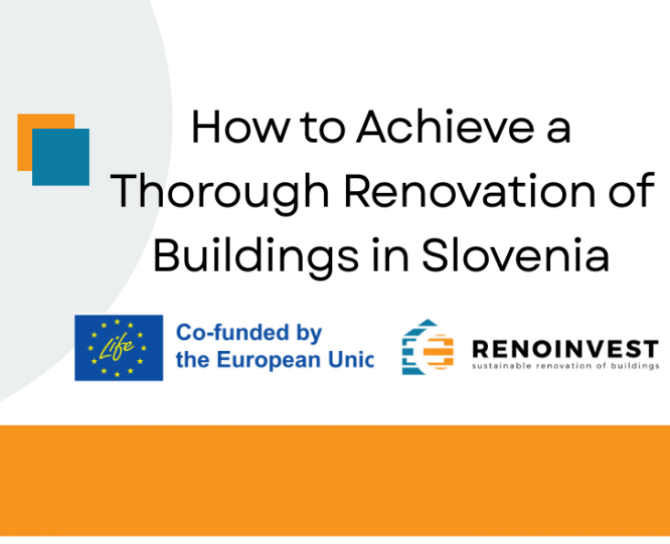
How to Achieve a Thorough Renovation of Buildings in Slovenia
The article describes the issues of Slovenia's existing building stock in light of the climate goals by 2050, which cannot be achieved with low renovation rate, which not intensive enough, and not sustainable. The text focuses in particular on legislation condition regarding the planning and financing of energy renovation of buildings and the role of the public sector.
So far, in addition to direct financial assistance to the public sector, the Slovenian Environmental Public Fund (Eko Fund) has been the most versatile in this area in Slovenia. The Slovenian government has supported programs of energy suppliers and energy service companies. Grants from the Climate Change Fund are available, loans under the programs of SID Bank, several programs of energy suppliers, and a public-private partnership based on the principle of energy contracting (EnPC). Slovenia also offered two different types of green bonds: corporate bonds of private and public companies and government bonds issued by the Republic of Slovenia.
But the result is not satisfactory. In order to improve it, it would be necessary to activate private capital. Private financing and various private-public combinations have already been advocated by the discussants of past Sustainable Energy Investment Forums.
Therefore, one of the key objectives of the RENOINVEST project is to initiate the necessary policy changes to eliminate the most obvious obstacles and upgrade financial instruments for long-term activation. Through various activities, a dialogue is established between stakeholders, especially financial institutions and financial enablers, to find appropriate solutions.
The final result of the project will be an Action plan to support smart investments in sustainable building renovations for the period between 2025 and 2030, with a view to 2050.
Read the full article (in Slovenian) in Gradbenik 1–2 / 2025:
Download PDF
